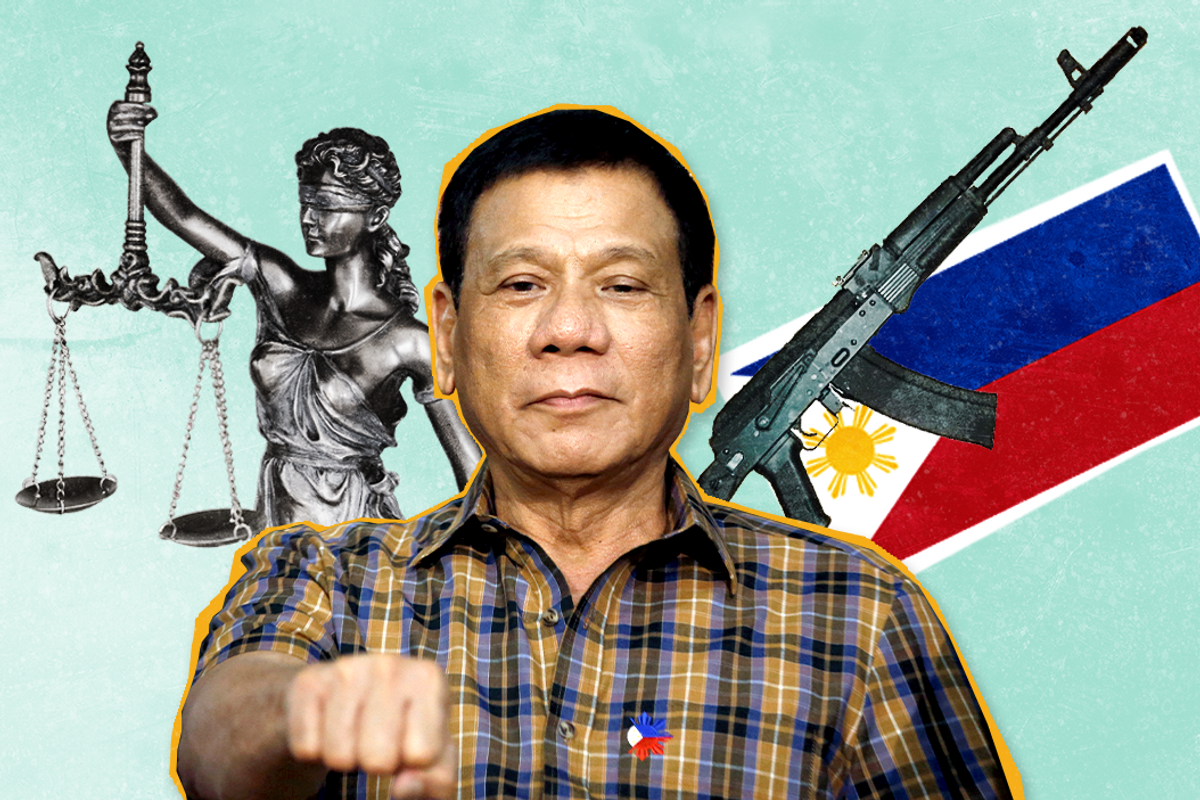For years, the Philippines has struggled with domestic terrorism. Last Friday, Rodrigo Duterte signed into law a sweeping new anti-terror bill that has the opposition on edge, as the tough-talking president gears up to make broader constitutional changes. Here's a look at what the law does, and what it means for the country less than two years away from the next presidential election.
The legislation grants authorities broad powers to prosecute domestic terrorism, including arrests without a warrant and up to 24 days detention without charges. It also carries harsh penalties for those convicted of terror-related offenses, with a maximum sentence of life in prison without parole. Simply threatening to commit an act of terror on social media can now be punished with 12 years behind bars.
Supporters of the law argue that the Philippines requires stronger laws to go after the communist guerrillas and Islamist militants who have harried government forces and taken hundreds of lives. On the other hand, human rights activists and the media warn that the government may weaponize the bill to silence its critics, and are pushing for the Supreme Court to strike it down (an unlikely prospect, as it's full of Duterte appointees).
Why does the Philippines need this bill?
Because it genuinely has a terrorism problem. The communist guerillas of the New People's Army have been fighting government forces in rural areas for over half a century. Meanwhile, the southern island of Mindanao has been a hotbed of Islamic extremism and separatism since the 1970s.
Three years ago, it took the military a full five months to liberate the Mindanao city of Marawi from a ragtag group of Islamic State-linked militants. That siege, the Philippines' longest-ever episode of urban warfare, prompted lawmakers to move quickly on drafting new, tougher anti-terror legislation, modeled in part on similar measures taken by Indonesia and Singapore.
But it soon emerged that the bill's ambiguous and expansive definition of terrorism, along with the sweeping powers it confers to a government-appointed body that designates individuals and groups as "terrorists," made the law ripe for abuse.
That's why human rights activists and the media are worried. They argue that it will encourage self-censorship out of fear of being prosecuted for social media posts that are critical of the government if the new anti-terrorism council — whose members are appointed by the same government — vaguely interprets them as inciting terrorism "by mean of speeches, proclamations, writings, emblems, banners or other representations." Journalists are also concerned that they could be held liable if their (independent) reporting falls into the same broad category of "incitement" — a real threat following the recent conviction of press freedom icon Maria Ressa for cyber libel.
So, why now? Duterte is now two-thirds through his six-year single term as president. Although he is constitutionally barred from running for reelection, Duterte's opponents are concerned that the 75-year-old leader might be angling to pull a 2008 Vladimir Putin move, by rewriting the constitution in a way that enables him to jump to an empowered prime minister role.
In fact, pro-Duterte lawmakers have been working since 2016 on a constitutional reform project to shift the Philippines to a federal form of government. If Duterte does opt for a national referendum on constitutional changes, critics worry that the sweeping anti-terrorism legislation would give the government a powerful tool to silence dissent or unfavorable media coverage.
A dream scenario for the Philippine president…if he indeed decides he wants to stay on after 2022.


















